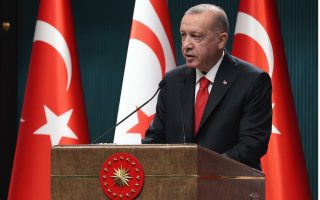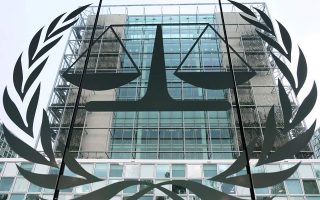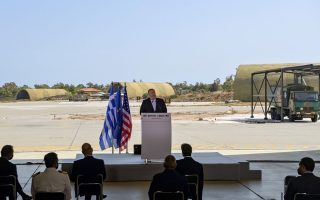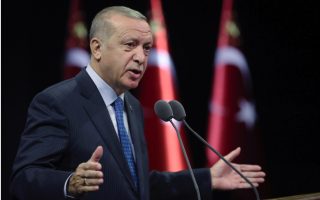Putting our alliances to use
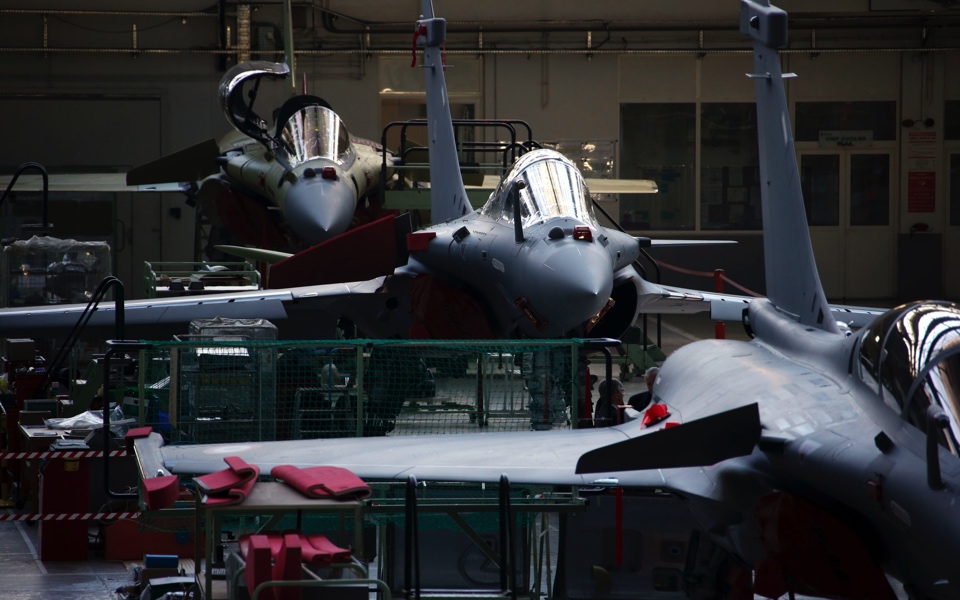
A crucial and recurring question posed with every Greek-Turkish crisis is: How will Greece manage to contain Ankara’s aggression? Athens must certainly not give in to the provocations. At the same time, it must safeguard its sovereign rights. Comparing the latest crisis to previous ones, we can see two key differences: In 1976 and 1987, Greece stopped the operation of Turkey’s seismic survey vessels using sea and aerial means. This time, we marked a red line along the 6-nautical mile territorial sea boundary and our reactions were restricted to a diplomatic level. What is at stake however is not the defense of our territorial sea, which Ankara has anyway never really questioned, but the defense of our sovereign rights in areas over which Greece asserts exclusive economic zone (EEZ) jurisdiction. In drawing a red line about the 6-nautical mile limit we are essentially sending a message to Turkey that it can uninterruptedly violate Greece’s potential EEZ. Turkey’s policy may thereby not be enough to produce legal results, but it does produce actual results. For the time being, the Turks are carrying out research activity near the territorial waters of the Aegean island of Kastellorizo. Their free rein would be much harder to tolerate if they were in the coming period to carry out drilling within Greece’s prospective EEZ, in the sea area of Kastellorizo, or off the eastern coast of the island of Crete.
A second difference is that the crisis is no longer an exclusively Greece-Turkey dispute. It is part of broader geopolitical and geo-economic developments in the Mediterranean. Turkish President Recep Tayyip Erdogan’s ambition to make Turkey a regional power has caused concern and disaffection among its neighbors, as well as the West. The objective of forging a preventive strategy creates opportunities for alliances and cooperation schemes which in turn offer a wider set of options for containing Ankara’s unlawful actions. The important thing is that we assess and make use of these options, gauging with realism what our partners and allies can and cannot offer. The international environment is very favorable for Greece at the moment. More specifically:
* To what extent can we expect help from the European Union, on which we have based nearly all of our hopes? Sure, it’s fine to extract statements of solidarity and warnings of sanctions against Turkey. But although a set of meaningful sanctions would be welcome, they would not solve our problem. EU decisions reflect the balance of interests between member-states. The EU has in the past shown that as a collection of states it does not have the necessary political will to clash with Turkey in order to guarantee our national security. It would at best impose sanctions that would be very unlikely to force Erdogan to change course.
* Have we made use of the alliance-building possibilities offered by the disaffection caused by Turkey’s aspiration to assume a hegemonic status in the Eastern Mediterranean? Is it true that, at the very last moment, Greece backed away from a deal to purchase two French Belharra frigates which would have included the provision of mutual military assistance? And is it true that this happened because of Germany’s mediation, which led to the Berlin talks with the familiar outcome? Do we believe that a military alliance between Greece and France (which would upgrade Greece’s strategy of deterrence and thus bolster its bargaining position in talks) would be inconsistent with Germany’s mediation?
Greek-French ties cannot be limited to arms deals, but have to be seen within a strategic framework. France has the power to contain Turkey’s aggression. If Paris is willing to offer a defense assistance clause, Athens would be mistaken not to accept it, even if in return it were to buy Rafale jets or frigates. A deal for defense assistance could include the docking of a French frigate at Kastellorizo or other Dodecanese islands, or the parking of Rafale aircraft at Greek air bases. That would send the signal that a military confrontation between Greece and Turkey would trigger the involvement of French naval and air units.
By contrast, there is no point in pushing Germany, which appears to make policy on the basis of its political, economic and historical ties with Turkey. This does not mean that we should not pursue the imposition of sanctions and that we would not engage in talks for continental shelf and EEZ delineation.
* How have we taken advantage of the unfolding anti-Turkish front (France, the United Arab Emirates, Israel, Egypt, Saudi Arabia)? The trend also offers space for collective action.
* In what ways have we taken advantage of our closer ties with the United States and what have we gained in terms of military assistance in return for the facilitations we were asked to provide – facilitations that we actually granted via the Greek-US military agreement signed a year ago? Have we invoked Washington’s assurance that it remains committed to supporting Greece’s security, as stated in US Secretary of State Mike Pompeo’s letter earlier this year, and how does this commitment play out in practical terms? That letter restated the written assurance/guarantee by the US in 1976 that the Americans will “actively and unequivocally oppose” any recourse to military action in the Aegean. The assurance was confirmed verbally by President Gerald Ford on June 15, 1976. Without any intention to underestimate the positive statements of the US and the American ambassador’s effectiveness in promoting the upgrade of Alexandroupoli port and investments in Greece, it would only be natural to expect military assistance when Pompeo says that bilateral relations are at an “all-time high” and the military facilitations that we provide have been reinforced and expanded. It is after all in the interest of the US to protect the national security of a nation where so much of their strategic interests are at stake.
The coming months will be crucial, and until the swearing-in of President-elect Joe Biden we must be cautious as Erdogan may be tempted to escalate tensions. The new US administration will not be as tolerant toward Turkey. However, it would be a mistake to raise the bar too high, assuming, as we often tend to, that the benefits will come from an improved political environment without the need for hard bargaining. The main objective is always that of reinforcing our defense security. Greece’s defense issue is very specific and we ought to find solutions that suit this problem.
Konstantinos Bitsios is an honorary Greek ambassador.
